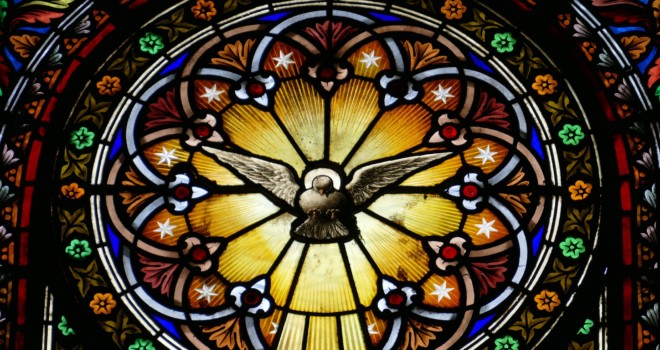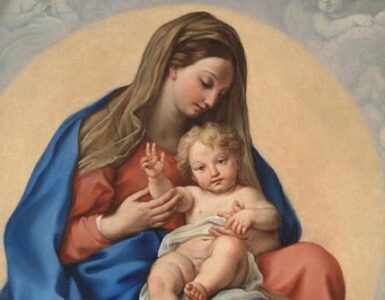“We cannot come to a conclusion about the state of our soul from its suffering or its rejoicing…Consolation indicates, certainly, that the soul has taken a step in the spiritual life, but desolation may be a sign that it is even nearer to the summit.”
– Luis M. Martinez, True Devotion to the Holy Spirit
Consolations and desolations, much like the seasons, cycle throughout our lives. One often precedes another. God usually showers a soul with consolations in order to strengthen it for an upcoming desert period, but desolations also give way to surges of comfort, too.
Spiritual writer Luis M. Martinez wrote about four consolations of the Holy Spirit we may not recognize while we are desperately grasping for any signal that God is with us. We tend to consider warm feelings as an indication that all is well with our souls, but there are other ways God uplifts us in more subtle, even unnoticeable, ways.
The Consolation of Freedom
“If we are not happy, it is because we are not free, because we carry chains we may be unaware of or may even love” (p. 213).
Freedom is a consolation of the Holy Spirit, even when we live in unusual, or even inhumane circumstances (think concentration camps and gulags). Viktor Frankl, a psychiatrist and Holocaust survivor, wrote in his classic, Man’s Search for Meaning, that no one can take away one’s interior freedom to choose.
Free will is the ultimate gift of the Holy Spirit.
The Consolation of Union
“…A very solid, intimate consolation, a consolation that makes us forget the troubles of life, or at least enfolds them in the splendor of celestial happiness: the consolation of union” (p. 214).
It’s hard to breathe some days, isn’t it? When the world overwhelms and our minds are spinning so fast we scarcely have a moment to pause and pray, we feel like we might collapse. I have.
On several occasions, the Holy Spirit intercedes. I am on the brink of a breakdown, and suddenly I catch a glimpse of an unusual bird in our backyard. Or one of my children says something witty. Or a friend stops by with a basket of treats and gifts.
Union with God happens in spurts while we are still on the pathway to The Unitive Way. These are consolations meant to strengthen us for the times we are weary and burdened by life.
The Consolation of Hope
“If we live the Christian life, we have in our heart ‘the substance of things to be hoped for’ (Heb. 11:1)…And we rejoice in our hope, not only because we trust in the promise of God, but also because we carry within us the guarantee of its fulfillment” (p. 215).
Sometimes hope is all we have left. The world is in shambles with political polarization, rioting and wars, poverty and corruption, uncertainty with the global health crisis, and personal trials. People are still dying from cancer, struggling with substance abuse, and barely scraping by financially.
Where is the hope?
I think of the moments when I remember the good, beautiful, and true. They still exist. Sometimes we have to look hard to find them, but they are peeking through the cracked bits of our lives. For me, it is the fidelity of a sunrise, the hearty evensong of a backyard cardinal, or a memory of God’s providence.
Hope carries us through the unfamiliar, dark places.
The Consolation of Pain
“Pain enlightens; there are things we do not comprehend unless we have suffered, because grief sheds some special celestial light over our spirit” (p. 244).
It can be perplexing to consider pain a consolation from God. I know no one who looks for pain as a sign of God’s favor, though many saints wisely attributed their sufferings to deeper love of God. We don’t really grasp the depth of Jesus’ sacrifice for us until we, too, have suffered in some way.
Suffering can draw us nearer to God’s heart. When my physical and psychological pain cause me great pain, I turn to God all the more. I don’t always hear His voice or feel relief, but I look to the Cross and remember that there is a mysterious purpose for my struggles in this life. Therein lies the consolation.
We must remember that seasons of consolation prepare us for the dry spells in our spiritual walk. Both are gifts. Consolations may come in one of these four unexpected ways, which often seem more like aspects of desolation than comfort. As with many aspects of the Christian life, sufferings and joys mingle together, so that they become indistinguishable from each other.
All of life is bittersweet. And it is good.












